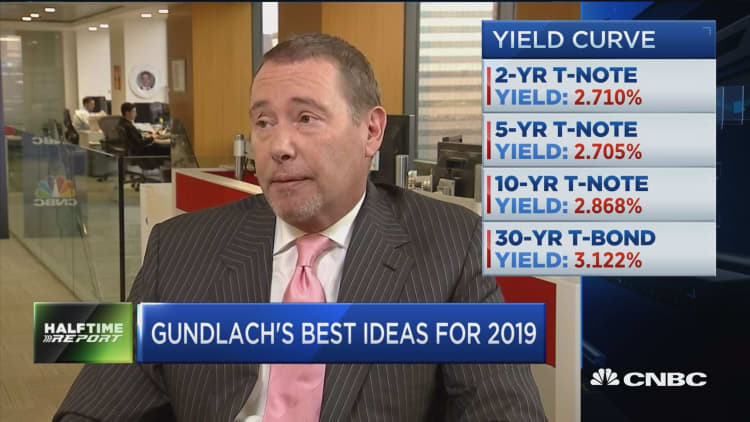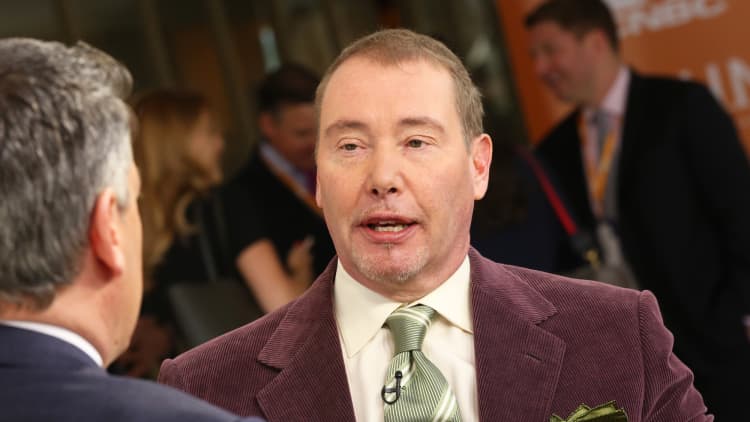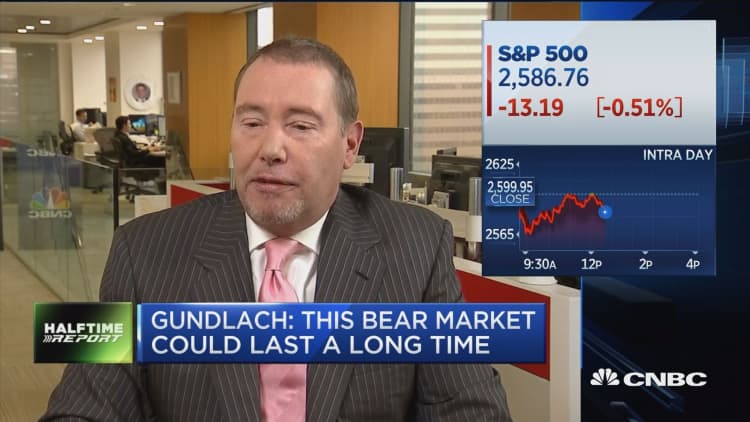
DoubleLine Capital CEO Jeffrey Gundlach took a shot at passive investment strategies such as index funds on Monday, declaring the investing strategy a "mania" that is causing widespread problems in global stock markets.
"I'm not at all a fan of passive investing. In fact, I think passive investing ... has reached mania status as we went into the peak of the global stock market," Gundlach said, speaking with CNBC's Scott Wapner on "Halftime Report" in Los Angeles.
"I think in fact that passive investing and robo-advisors ... are going to exacerbate problems in the market because it's herding behavior," Gundlach added.

Gundlach's DoubleLine actively manages clients' money and has more than $120 billion in assets under management, according to the firm's website.
Index funds are one of the more popular ways to invest in stocks for many investors. Money has flooded into index funds and exchange-traded funds during this bull market, while active strategies have suffered. The market for index funds has reached $6 trillion, while the market for ETFs has ballooned to $5 trillion since the SPDR S&P 500's inception in 1993. Investors shrugged at the recent recession fears and economic concerns, adding more than $16 billion to U.S.-listed ETFs in the week ended Dec. 13, according to FactSet.
"I wouldn't advise anyone to be a passive investor," Gundlach said. "My strongest advice is to not invest in passive U.S. equity funds."
Vanguard Group, one of the world's largest providers of passive investment funds, responded to Gundlach in a statement to CNBC.
"While Mr. Gundlach may enjoy pointing fingers, the data simply does not support his claims," Vanguard said. "Index funds own a modest 15% of the value of all global equities, and the strategy accounts for less than 5% of the exchanges' total trading volume."
Gundlach said his best idea for 2019 is "capital preservation." He defines that as "high-quality, lower-volatility, lower-duration bond funds" he said.
On the flip side, Gundlach said that "the worst thing you can do is what everybody has done: Crowd into S&P 500 index funds because that's the most expensive market."
He believes the S&P 500 will break below its February lows eventually and is in a bear market.
The investor made correct predictions for 2018, including a drop in stocks on rising yields and declines in Facebook and bitcoin. He thinks the stock market is headed lower next year, calling for the S&P 500 to fall below the lowest level it hit this year.

– CNBC's Yun Li contributed to this report.


